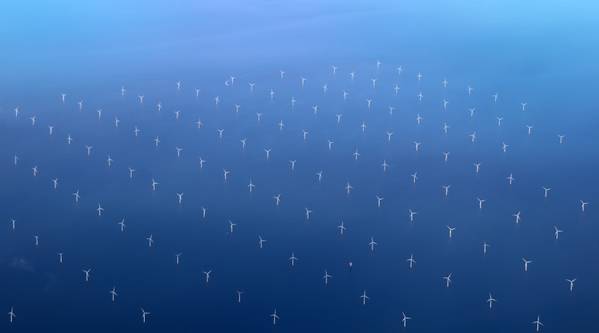
Energy ministers from European countries surrounding the North Sea are set to pledge to quadruple offshore wind energy capacity by the end of the decade as they aim to turn the region into an engine of renewable power.
Seven European Union countries, including Germany, France and the Netherlands, alongside non-EU countries the United Kingdom and Norway, will commit at a summit on Monday to rapidly build wind farms, develop energy "islands" - connected offshore green power generation sites - and launch their first projects to produce renewable hydrogen at sea.
A draft of the ministers' summit declaration, seen by Reuters, pitched the plans as a way to end Europe's reliance on Russian fossil fuels, after Moscow slashed gas supplies last year following its invasion of Ukraine.
"In response to Russia's aggression against Ukraine and attempts of energy blackmail against Europe we will accelerate our efforts to reduce fossil fuel consumption as well as dependence on fossil fuel imports," the draft said. The declaration could still change before it is announced at a summit of European governments to promote North Sea green energy in Ostend, Belgium, on Monday. Ministers from Belgium, Denmark, Ireland and Luxembourg are also set to sign it.
The nine countries are aiming for a combined 120 gigawatts (GW) of North Sea offshore wind capacity by 2030, and to more than double that to 300GW by 2050. The same countries have around 30GW of offshore wind currently installed, according to industry group WindEurope. Countries' individual aims include the United Kingdom's plan to build 50GW of offshore wind by 2030, while Germany plans 26.4GW, the Netherlands 21GW and Belgium 6GW.
Belgium, Denmark, Germany and the Netherlands also plan to form a cluster of energy islands while Germany will launch pilot projects to produce hydrogen at offshore facilities using renewable energy, the draft said.
The countries also intend to collaborate more to protect their offshore energy assets from security threats and cyber attacks, and ensure that plans to expand energy production at sea do not damage the marine environment or local communities. (Reporting by Kate Abnett; Editing by Kirsten Donovan)